Our C-Store Champions share their experiences of trading among growing competition from the multiples
Susie Hawkins: The multiples have had a mixed effect on my business. My Budgens stores can compete very well because they're cracking convenience store offerings with a great range, along with the personal service of being a family business and not a faceless multiple. My smaller stores struggle a bit more because they don't have the range.
Nigel Dowdney: My turnover reduced by 50% when Tesco opened across the road from me, making my life that much harder. And footfall in the town centre fell by 55%, which is the opposite of what Tesco said would happen.
Raj Chandegra: My Kensington branch got hit a lot when Tesco opened a mile away, and now it's stabilised at 8-10% down. Six months ago, the Tesco Express in Barnes closed for two weeks for a refit and our takings in the Barnes branch went up by 15%, so we can take it that I'm being hit by 15%, and I'm not seeing the incremental sales I should be having every year to account for inflation. This has been going on for 10-12 years, so all that time it's taken away something I could have had.
SH: One topical point is the seasonal offers. This year some were doing five Easter eggs for £4 when the rrp is £2.99 each - they must be using them as a leader; I don't believe their buying power is that much better. They do a similar thing at Christmas. It's scary what they do in that respect. If their buying power gets so great and prices become so different, we're going to find it very difficult to trade. People expect a few extra pence for service and convenience, but if we get too far away in terms of price, it will be a concern, especially with the economic climate the way it is at the moment. It's very worrying.
ND: The way booze is sold below cost has a major effect, and now they've moved into Easter eggs and boxes of chocolates. All the stuff we used to be able to rely on selling and fairly competing on, they're taking as loss leaders. The biggest disappointment is that the Competition Commission hasn't done anything about creating a level playing field on purchase price. It recognised that there's a 16% difference in purchase price, but when you put a wholesaler in the middle of that, I would say it's more like 20-25%. The biggest thing is the way the multiples use their power with the planning authorities, the bullying, and the way they use publicity. If you believe the Talking Tesco website, Tesco taught me to be a good retailer!
RC: Below-cost selling is a really big issue - how can I compete with Easter eggs being sold at five for £4? It's a loss leader for the multiples but there's nothing you can do about it, so I ignore it and try to do something different. During periods such as Easter and Christmas, people are going to buy such products anyway, so why do they sell them at such silly prices? They're just trying to pull customers in so they buy other things as well.
SH: We're much more aware of selling price and try to keep as competitive as we can. We had to take the decision to differentiate ourselves and decide what our place in the market is. Barnwood is open 24 hours every day so we're really servicing the community. We try and emphasise the family business aspect and we take that through to the customer - they're not a number, they're a person we know. It's become more important to give yourself a point of difference, and you can see the reward for doing that now.
ND: I deliberately source products that the multiples don't sell, and take a big part in the local community. It's all about raising your profile in the community when you can't afford to take big advertisements in the newspaper. We've changed our offer and widened our outlook.
RC: I try to worry about the competition as little as possible. There's no point in competing with the multiples so I do my own thing. We carry the major brands but also source products locally and from specialist suppliers. We didn't carry a single line of Cadbury or Mars this Easter, but instead sourced from a couple of specialist suppliers to create a point of difference.
SH: Luckily we haven't. Where you get a big market with lots of supermarkets, like in Gloucester, you do get caught in the middle as they drive prices down, but we've never come head to head on trying to compete. That's because we've tried to differentiate ourselves.
ND: When Tesco came into the area, it really shouted about the wide choice of products it was offering, but over a period of time it's been getting rid of some name products and just keeping its own label versions, which it makes more money on. So while Tesco says it's giving the consumer a lot of choice, it's slowly whittling that choice away. People come in asking for products that have been delisted
by Tesco.
We had a Tesco Express store move into the area and it was much bigger than our store, but the Tesco stocked 1,400 lines while we carried 4,300.
SH: A very long time ago we managed to persuade the council not to let them in to two out of three areas. Now, we struggle to get planning to do our own shops - we're almost being tarred with the same brush.
ND: We fought hard with petitions and rallies and the first two planning applications were turned down on majority, but the district council overruled the planning committee. What's happened is that we've proved that we were absolutely correct in what we were saying - that footfall in the town would drop massively and independent shops would close. We've got to publicise what's happened in Australia, where two companies hold an 80% share of the food market.
RC: Near us there was a car showroom which Tesco put an application in to develop. We had a big petition in-store and thankfully 80-85% of the people of Barnes were against it. I think we have a Sainsbury's Local coming in Hounslow, so I'll watch what they do. On the same high street there's a Tesco, so they're going to have a war between them and who's going to suffer the most? The poor old independent.
SH: The independent sector will probably shrink further because smaller shops will struggle that much more. Hopefully, the remaining stores will be able to compete. But it'll become much more difficult because the bar is always being raised. My biggest worry is that if the independent sector becomes smaller, our buying power will be depleted, and my prices will become so uncompetitive that I won't be able to trade.
ND: The independent sector has got to keep ahead and continually improve. I've never seen a Tesco manager put anything back into the local community. We're challenged with a faceless multiple so we've got to become the true face of the local community.
RC: Sooner or later all the small boys will disappear and there'll be nothing unique about any high street. Those who survive will be retailers that fight in a different way - constantly improving their standards, and investing in their premises, equipment, maintenance and training. Price won't make the difference, but the way retailers run their businesses will.
What effect have the multiples had on your business over the past few years?
Susie Hawkins: The multiples have had a mixed effect on my business. My Budgens stores can compete very well because they're cracking convenience store offerings with a great range, along with the personal service of being a family business and not a faceless multiple. My smaller stores struggle a bit more because they don't have the range.
Nigel Dowdney: My turnover reduced by 50% when Tesco opened across the road from me, making my life that much harder. And footfall in the town centre fell by 55%, which is the opposite of what Tesco said would happen.
Raj Chandegra: My Kensington branch got hit a lot when Tesco opened a mile away, and now it's stabilised at 8-10% down. Six months ago, the Tesco Express in Barnes closed for two weeks for a refit and our takings in the Barnes branch went up by 15%, so we can take it that I'm being hit by 15%, and I'm not seeing the incremental sales I should be having every year to account for inflation. This has been going on for 10-12 years, so all that time it's taken away something I could have had.
Which activities of the multiples concern you most?
SH: One topical point is the seasonal offers. This year some were doing five Easter eggs for £4 when the rrp is £2.99 each - they must be using them as a leader; I don't believe their buying power is that much better. They do a similar thing at Christmas. It's scary what they do in that respect. If their buying power gets so great and prices become so different, we're going to find it very difficult to trade. People expect a few extra pence for service and convenience, but if we get too far away in terms of price, it will be a concern, especially with the economic climate the way it is at the moment. It's very worrying.
ND: The way booze is sold below cost has a major effect, and now they've moved into Easter eggs and boxes of chocolates. All the stuff we used to be able to rely on selling and fairly competing on, they're taking as loss leaders. The biggest disappointment is that the Competition Commission hasn't done anything about creating a level playing field on purchase price. It recognised that there's a 16% difference in purchase price, but when you put a wholesaler in the middle of that, I would say it's more like 20-25%. The biggest thing is the way the multiples use their power with the planning authorities, the bullying, and the way they use publicity. If you believe the Talking Tesco website, Tesco taught me to be a good retailer!
RC: Below-cost selling is a really big issue - how can I compete with Easter eggs being sold at five for £4? It's a loss leader for the multiples but there's nothing you can do about it, so I ignore it and try to do something different. During periods such as Easter and Christmas, people are going to buy such products anyway, so why do they sell them at such silly prices? They're just trying to pull customers in so they buy other things as well.
Have you altered your business as a result of the multiples coming to your area?
SH: We're much more aware of selling price and try to keep as competitive as we can. We had to take the decision to differentiate ourselves and decide what our place in the market is. Barnwood is open 24 hours every day so we're really servicing the community. We try and emphasise the family business aspect and we take that through to the customer - they're not a number, they're a person we know. It's become more important to give yourself a point of difference, and you can see the reward for doing that now.
ND: I deliberately source products that the multiples don't sell, and take a big part in the local community. It's all about raising your profile in the community when you can't afford to take big advertisements in the newspaper. We've changed our offer and widened our outlook.
RC: I try to worry about the competition as little as possible. There's no point in competing with the multiples so I do my own thing. We carry the major brands but also source products locally and from specialist suppliers. We didn't carry a single line of Cadbury or Mars this Easter, but instead sourced from a couple of specialist suppliers to create a point of difference.
Has your business ever suffered from predatory pricing on a local level?
SH: Luckily we haven't. Where you get a big market with lots of supermarkets, like in Gloucester, you do get caught in the middle as they drive prices down, but we've never come head to head on trying to compete. That's because we've tried to differentiate ourselves.
ND: When Tesco came into the area, it really shouted about the wide choice of products it was offering, but over a period of time it's been getting rid of some name products and just keeping its own label versions, which it makes more money on. So while Tesco says it's giving the consumer a lot of choice, it's slowly whittling that choice away. People come in asking for products that have been delisted
by Tesco.
We had a Tesco Express store move into the area and it was much bigger than our store, but the Tesco stocked 1,400 lines while we carried 4,300.
Have you had any involvement in a multiple's planning application?
SH: A very long time ago we managed to persuade the council not to let them in to two out of three areas. Now, we struggle to get planning to do our own shops - we're almost being tarred with the same brush.
ND: We fought hard with petitions and rallies and the first two planning applications were turned down on majority, but the district council overruled the planning committee. What's happened is that we've proved that we were absolutely correct in what we were saying - that footfall in the town would drop massively and independent shops would close. We've got to publicise what's happened in Australia, where two companies hold an 80% share of the food market.
RC: Near us there was a car showroom which Tesco put an application in to develop. We had a big petition in-store and thankfully 80-85% of the people of Barnes were against it. I think we have a Sainsbury's Local coming in Hounslow, so I'll watch what they do. On the same high street there's a Tesco, so they're going to have a war between them and who's going to suffer the most? The poor old independent.
How do you think multiples' growth in convenience will affect your business and the sector?
SH: The independent sector will probably shrink further because smaller shops will struggle that much more. Hopefully, the remaining stores will be able to compete. But it'll become much more difficult because the bar is always being raised. My biggest worry is that if the independent sector becomes smaller, our buying power will be depleted, and my prices will become so uncompetitive that I won't be able to trade.
ND: The independent sector has got to keep ahead and continually improve. I've never seen a Tesco manager put anything back into the local community. We're challenged with a faceless multiple so we've got to become the true face of the local community.
RC: Sooner or later all the small boys will disappear and there'll be nothing unique about any high street. Those who survive will be retailers that fight in a different way - constantly improving their standards, and investing in their premises, equipment, maintenance and training. Price won't make the difference, but the way retailers run their businesses will.








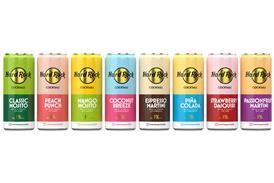

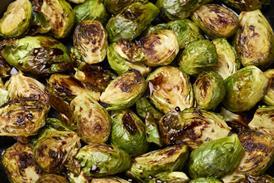
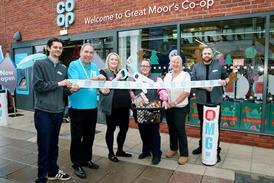
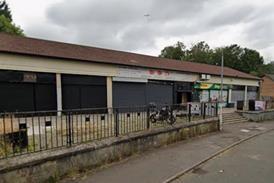
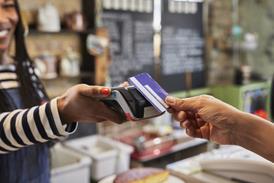








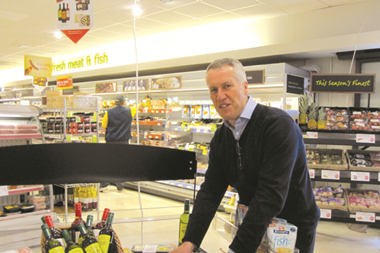
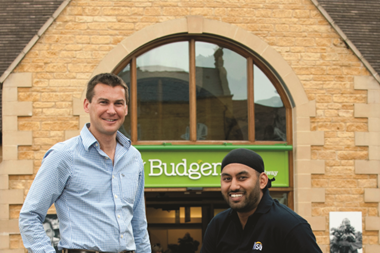






No comments yet